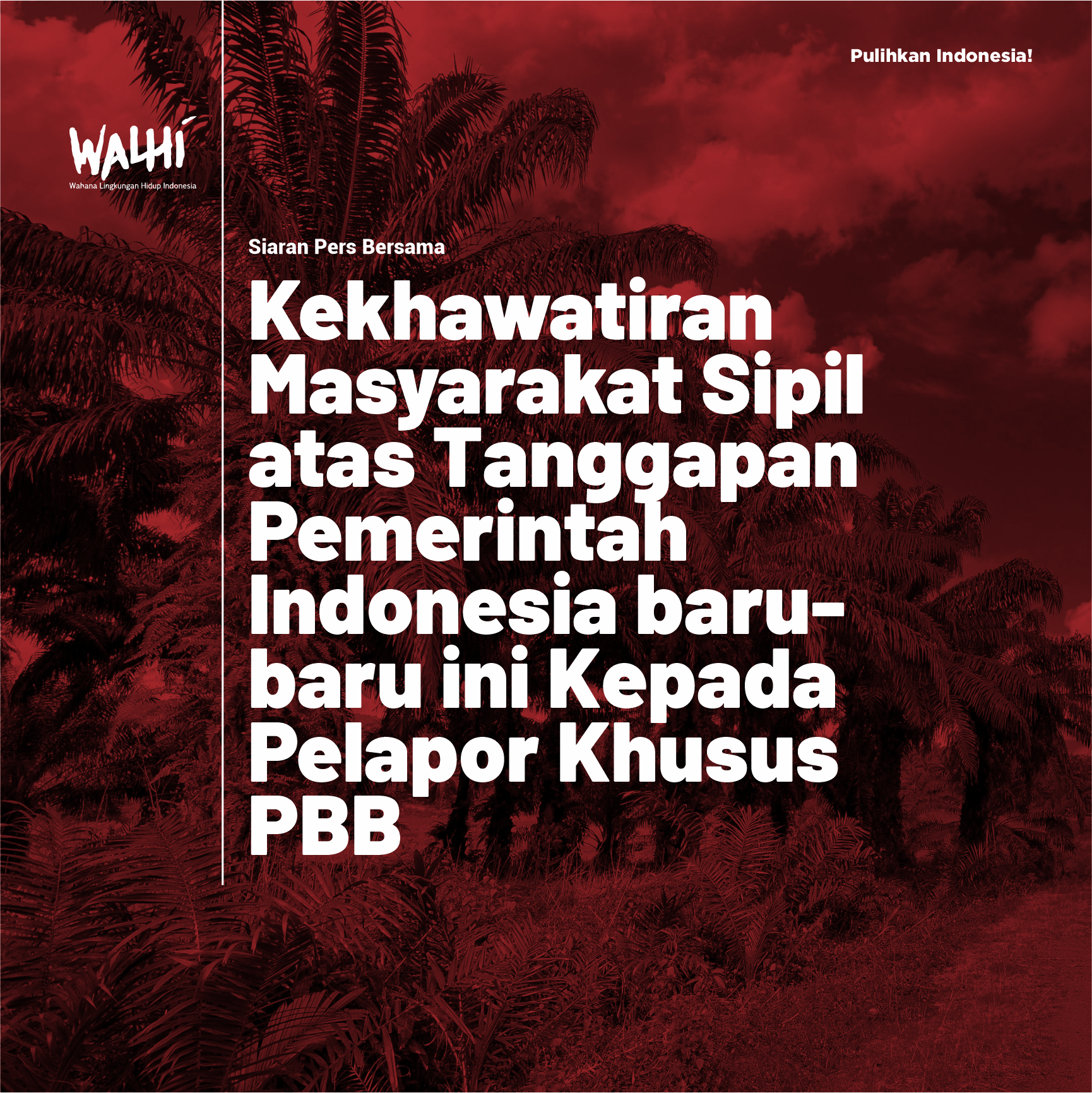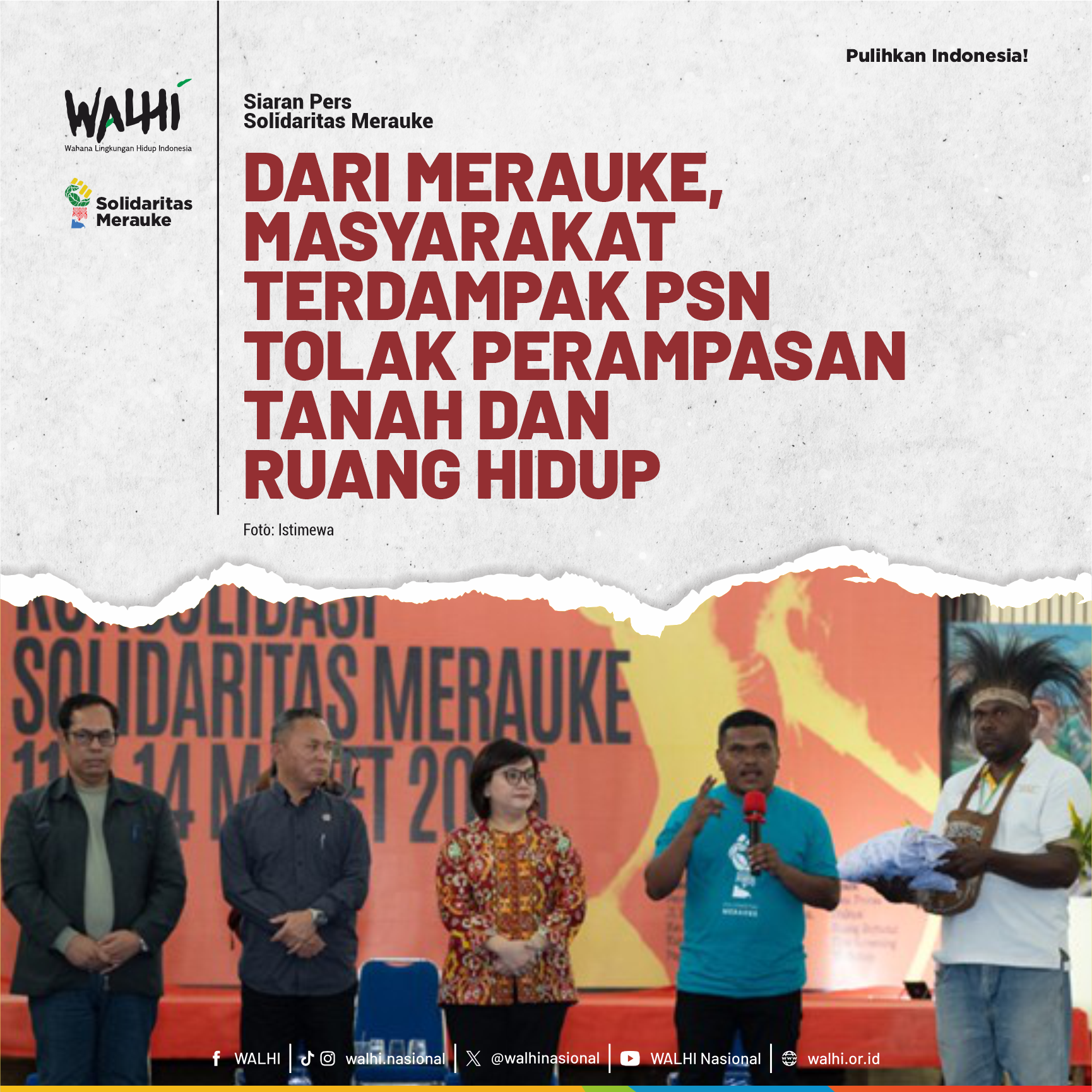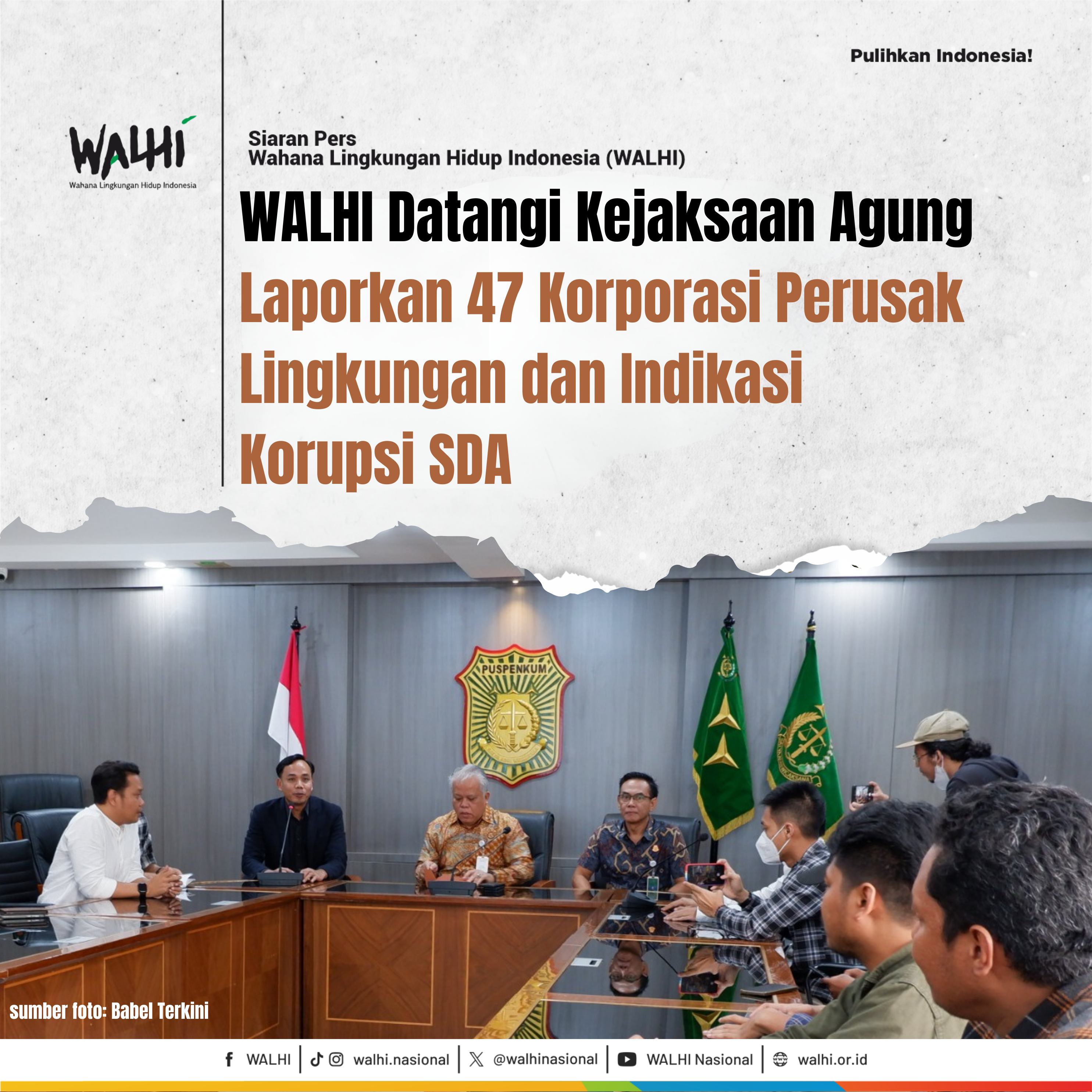Press Release Jakarta, March 29 2019. On March 27 2019, Coordinating Minister for Maritime Affairs, Luhut Binsar Panjaitan made a media statement that the Indonesian government threatened to leave the Paris Agreement, a statement in response to the release of Delegated Act European Commission regarding the use of palm oil for biofuels. WALHI condemns the indiscriminate statement of Coordinating Minister for Maritime Affairs because it was not well thought out. President Joko Widodo should reprimand the Minister for his statement. Indonesia’s involvement in the Paris Agreement is a commitment of President Joko Widodo as stated at the UNFCCC COP 21 in Paris to be involved in efforts in address climate change which is becoming a global issue. Indonesia also committed to reduce emission by 29% and 41% with International assistance in 2030 as stated in National Determined Contribution (NDC). Indonesia’s involvement in the Paris Agreement is one manifestation of Nawa Cita which is a priority of President Joko Widodo to increase the global role that mandates the increased international cooperation in overcoming global problems that threaten humanity including climate change. Therefore, a minister cannot declare to leave from Paris Agreement because it’s contrary to the President’s commitment. In addition, the Paris Agreement has also been ratified through Law Number 16 of 2016 by the House of Representative (DPR-RI). In Indonesian legal system, the ratification of international treaties is regulated in Law Number 24 of 2000 concerning International Agreements. Ratification of international treaties is carried out by Law or Presidential Regulation. The Paris Agreement as a legal basis in the efforts to anticipate climate change both globally and nationally is legalized in the form of legislation. In the Academic Manuscript that underlines the ratification of Paris Agreement, it is stated that controlling climate change is a constitutional mandate that every individual has the right to live in prosperity, physically and spiritually, reside and get a good and healthy environment and has the right to receive health services. The state provides direction and is obliged to ensure that the development needed to fulfill people’s welfare continue to pay attention to the protection of environmental and social aspects. With awareness to the threats of the negative impacts of climate change, controlling and managing climate change is not a burden to the State, but a necessity. Therefore, the State's commitment in dealing with climate change is also not just an international commitment but also a national agenda. Not only contradicts with the commitment of President Joko Widodo, the Minister’s statement also overstepped the authority of DPR-RI because the it was not approved by the parliament. In addition to that, Indonesia is located in a geographical area that is very prone to the effects of climate change. In general, the average temperature increase is estimated at 0.5 - 3.92 ° C in 2010 from 1981-2010 periods. The increase in temperature has resulted in a decrease of water availability, changes in plant productivity, loss of biodiversity which is an invaluable asset that has an impact on health, death, food security, migration patterns, natural ecosystems and economic prosperity, both locally and nationally. The Indonesian territory with more than 17,000 islands, and nearly 65% of the population lives in coastal areas, causing Indonesia's territory to be vulnerable to the effects of climate change, especially those caused by rising sea levels and flooding in coastal area or rob. The frequency of extreme weather which normally occurs in 5-7 years, it is now in 3-5 years due to climate change. La Nina has an impact that causes flooding due to high rainfall, while El Nino has extreme drought effects due to low rainfall. The threat to the safety of the people due to the effects of climate change is a priority of the government, especially the Coordinating Minister for Maritime Affairs to ensure 65% of the people living on the coast survive the effects of climate change, not threaten to leave the Paris Agreement just to defend the interests of palm oil corporations. Contact Person: Yuyun Harmono, Manager of Climate Justice Campaign harmono@wp_walhi.local I 08185072648 Edo Rachman, Campaign Coordinator of WALHI National Executive 081356208763
WALHI: LBP Threatens to Leave Paris Agreement oversteps President and Parliament






